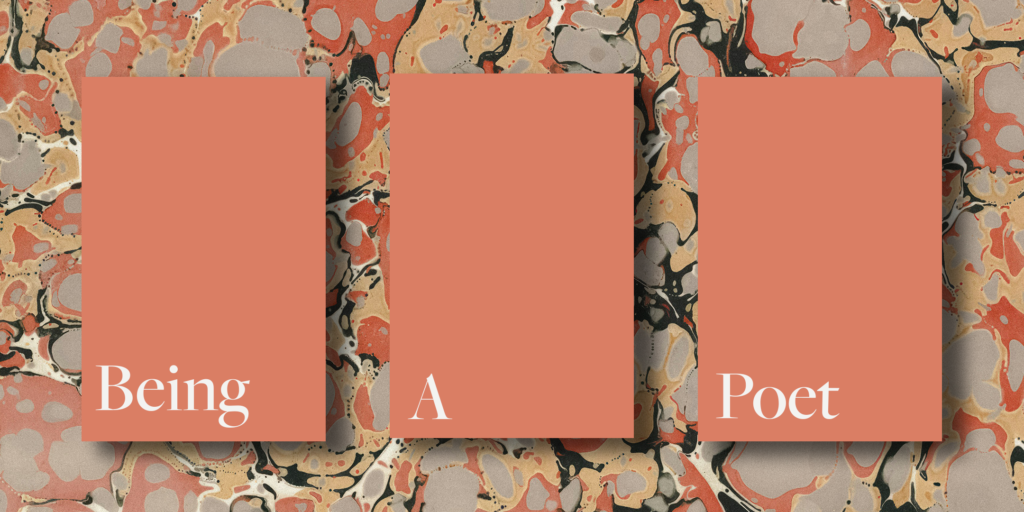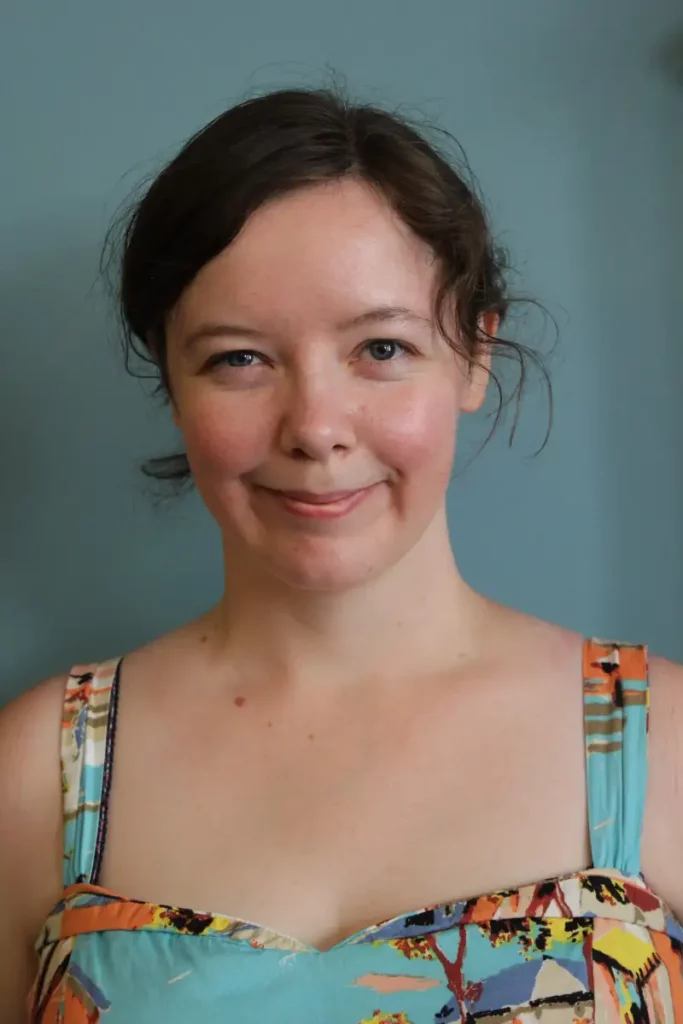In this series, we interview our tutors about poetry and its place in their world. These interviews will cover creative writing tips, excelling in a poetry workshop, building a literary career, and finding your poetic voice. Here’s Becky Varley-Winter on ‘Poetry Writing Tips for Beginners‘

If you’re reading this, you probably already have some curiosity about, or interest in, writing. So you have the main ingredient you need to write, which is:
Writing Tip 1: Want to Write
There’s no other qualification you need. The more meaningful question is, what’s stopping you? Do you need the time to think, the space? Could you carve out half an hour? Do you need to give yourself permission?
Here are a few of the blocks I’ve regularly heard as a writing tutor (both from beginners and more experienced poets):
“I wrote something but it’s not really a poem”
“I wrote something but it’s not very good”
“I don’t understand poetry but” [says something astute about the poem we’ve just read]
Ignore your inner censor and internal judgments for a while after all the judgments are not necessarily reliable. Nobody owns this artform. It’s yours. Write.
Writing Tip 2: Aim for Truth, Not Perfection
When I first started writing poems, I tried to make them very smooth, and edited out anything that felt messy or uncertain. It took me a long time to consider that perfection is not the main goal of art. A ‘perfect’ poem might end up being quite boring.
My opinion now is that the main task of poetry, and of writing in general, is to try to communicate some form of truth. You can always work on style, but you can’t create substance where there is none – so try to reach something true.
In this interview with the poet and teacher Marie Howe, Howe describes a writing exercise in which she asks her students to write ten direct observations of their surroundings, without metaphors, abstractions or interpretations:
Ms. Howe: I ask my students every week to write 10 observations of the actual world. It’s very hard for them.
Ms. Tippett: Really?
Ms. Howe: They really find it hard.
Ms. Tippett: What do you mean? What is the assignment? 10 observations of their actual world?
Ms. Howe: Just tell me what you saw this morning like in two lines. I saw a water glass on a brown tablecloth, and the light came through it in three places. No metaphor. And to resist metaphor is very difficult because you have to actually endure the thing itself, which hurts us for some reason.[1]
I love metaphors and imaginative flights, and don’t think a restrictive model of writing works in the long run. So, I wouldn’t ban metaphors permanently. However, writers I’ve mentored have found Howe’s exercise useful for honing their skills. It forces the writer to focus on their senses. Poetry can express vast mental landscapes, thoughts and feelings, but it helps if it’s also tuned into the world.
Writing Tip 3: Give Yourself a Prompt
Give yourself something to respond to. Play a song you love and describe what it makes you think of, in memory or imagination. Consider your favourite meal and the associations that food has for you. A painting. A month of the year. Imagine that you’re writing a letter to someone you miss. Go for a walk and describe what you see. Describe an act of kindness you’ve witnessed. Read a poem and write your own reply to it.
Writing Tip 4: Join a Writing Group
A sympathetic writing group can create community, regular writing prompts, and deadlines. Though different environments work for different people, I found workshops invaluable on the road to publication.
Writing Tip 5: Create Opportunities
Poetry is full of people who decided to start something, whether it’s a Substack, a podcast, a magazine, an open mic night. Again, there is no entry qualification, apart from the time and desire to create.
Writing Tip 6: Read Widely
If you want to write it helps to read widely and with an open mind. Explore libraries and bookshops. In London the Poetry Library is a great resource; you can also find a lot of poetry online.
Writing Tip 7: Enjoy Yourself
Poetry has a serious reputation, and poems can be a place where we reckon with hard experiences. There’s nothing poems can’t hold however you are also allowed to enjoy your writing. It can be a source of play and fantasy so if you want something, write it into being.
Writing Tip 8: Feel the Fear and Do It Anyway
In my experience, writing is all about pushing through fear. If you feel blocked or afraid to speak, write about the block, describe your fear.
If you’re beginning in poetry and interested in a thorough grounding in craft and gaining access to the poetry world, our new course Pathways through Poetry is right for you, find out more here.
Becky is running fortnightly Zoom sessions for us from 28 January 2026. This beginner’s workshop group is perfect for writers wishing to join a supportive community for close reading and developmental feedback on their new poems. She also teaches Poetic Forms for Beginners from 21 January 2026, giving accessible introductions to a wide range of poetic genres.
[1] Marie Howe, ‘The Power of Words to Save Us’, On Being with Krista Tippett, 4 May 2017: https://onbeing.org/programs/marie-howe-the-power-of-words-to-save-us-may2017/

Becky Varley-Winter’s first full-length poetry collection, Dangerous Enough, was published by Salt in 2023. She has also published a poetry pamphlet, Heroines: On the Blue Peninsula (V. Press, 2019), was longlisted in the National Poetry Competition 2019, won the T. R. Henn and Brewer-Hall Prizes, and appeared in Poetry Review, Magma, Rising, Finished Creatures, and Tentacular, amongst others. Her other publications are a book on modernist poetry and literary fragments, Reading Fragments and Fragmentation in Modernist Literature (Sussex Academic Press, 2018), and a collection of short fiction, BLOOM (Broken Sleep Books, 2021).
Add your Reply
You must be logged in to post a comment.